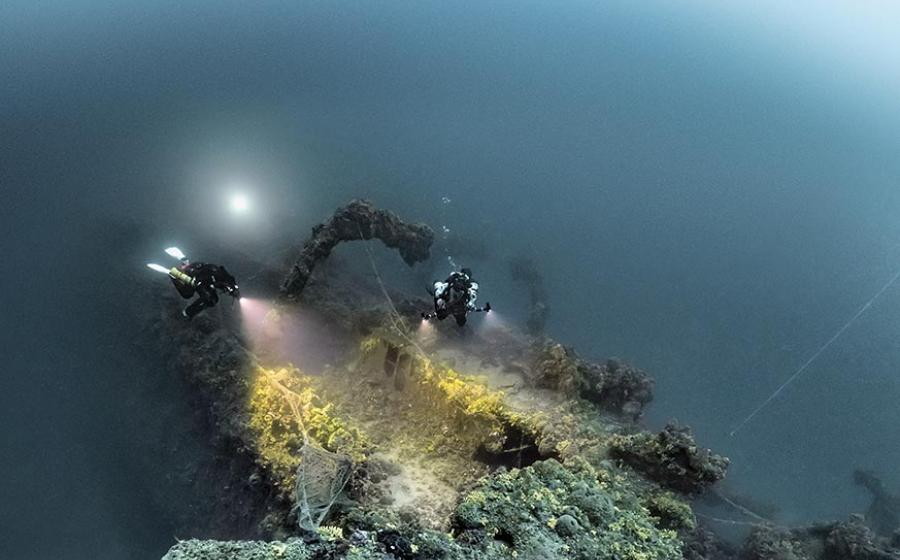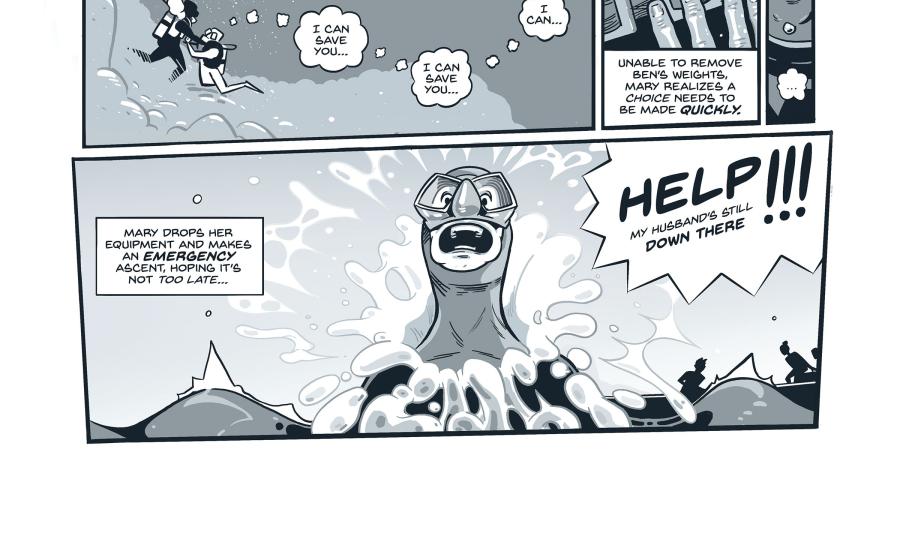Legacy of Eugenie Clark: Becoming the Shark Lady

Remembering the legacy of Dr. Eugenie Clark — The "Shark Lady" — and her work toward shark conservation.
David Doubilet/National Geographic Creative
Credit the New York Aquarium with Dr. Eugenie Clark’s life-long devotion to fish. At age 9, she had an overwhelming desire to be in their world, and that passion inspired her to become an ichthyologist, writer and explorer.
She wrote three books, 80 scientific treatises, and more than 70 articles and papers; she had four species of fish named for her. In 2014, after Clark was named Beneath the Sea’s Legend of the Sea, contributor Brooke Morton interviewed “The Shark Lady” for our sister magazine, Sport Diver. The following is an excerpt from that interview.
Favorite shark encounter?
I was out of the water, looking into the shark pen at Cape Haze Marine Laboratory (now known as the Mote Marine Laboratory) in Sarasota, Florida. I realized that our lemon sharks had learned to push the right underwater target to release food. We had trained sharks for the first time.
You sustained a shark bite while in a car. What happened?**
I was driving to a lecture for schoolchildren. On the front seat next to me was a tiger shark jaw. Running late, I stopped abruptly for a red light and stuck my arm out to prevent the jaw from cutting the dashboard. Instead, the teeth sliced my arm. The students were most interested in the bite-mark circle.
Most surprising discovery?
I found that one fish, the belted sandfish, could change sex from female to male — and vice versa — in as little as 10 seconds.
How has the gender gap changed for female scientists?
Tremendously! When I started, I was one of few females in the field — and the only one studying sharks. Now there are lots of female students of elasmobranchs. The shift can be seen in professional organizations, such as the American Elasmobranch Society, which started out with one female, and now has more than 50 percent female membership.
Greatest accomplishment?
My four children, the many friends I’ve made in the diving world, and to have a small part in inspiring an interest in sharks and marine life in children.
More Shark Facts and Conservation: Diver's Guide to Marine Life: Sharks

David Doubilet/National Geographic CreativeRemembering the legacy of Dr. Eugenie Clark — The "Shark Lady" — and her work toward shark conservation.
Credit the New York Aquarium with Dr. Eugenie Clark’s life-long devotion to fish. At age 9, she had an overwhelming desire to be in their world, and that passion inspired her to become an ichthyologist, writer and explorer.
She wrote three books, 80 scientific treatises, and more than 70 articles and papers; she had four species of fish named for her. In 2014, after Clark was named Beneath the Sea’s Legend of the Sea, contributor Brooke Morton interviewed “The Shark Lady” for our sister magazine, Sport Diver. The following is an excerpt from that interview.
Favorite shark encounter?
I was out of the water, looking into the shark pen at Cape Haze Marine Laboratory (now known as the Mote Marine Laboratory) in Sarasota, Florida. I realized that our lemon sharks had learned to push the right underwater target to release food. We had trained sharks for the first time.
You sustained a shark bite while in a car. What happened?**
I was driving to a lecture for schoolchildren. On the front seat next to me was a tiger shark jaw. Running late, I stopped abruptly for a red light and stuck my arm out to prevent the jaw from cutting the dashboard. Instead, the teeth sliced my arm. The students were most interested in the bite-mark circle.
Most surprising discovery?
I found that one fish, the belted sandfish, could change sex from female to male — and vice versa — in as little as 10 seconds.
How has the gender gap changed for female scientists?
Tremendously! When I started, I was one of few females in the field — and the only one studying sharks. Now there are lots of female students of elasmobranchs. The shift can be seen in professional organizations, such as the American Elasmobranch Society, which started out with one female, and now has more than 50 percent female membership.
Greatest accomplishment?
My four children, the many friends I’ve made in the diving world, and to have a small part in inspiring an interest in sharks and marine life in children.
More Shark Facts and Conservation: Diver's Guide to Marine Life: Sharks










